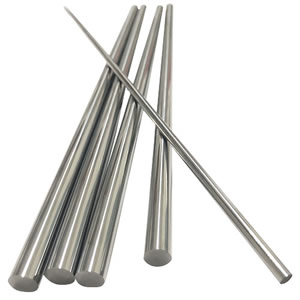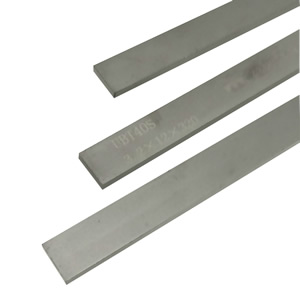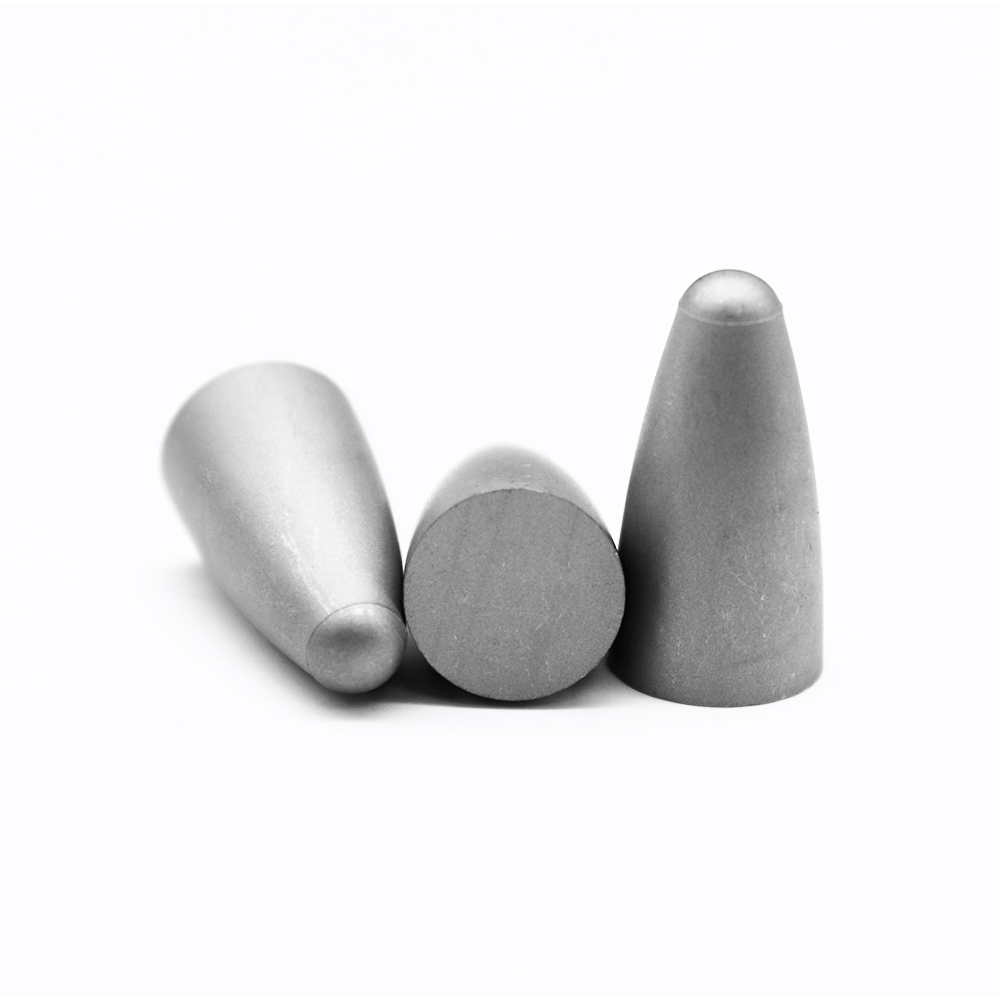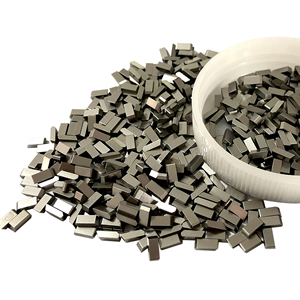The Density of Tungsten Carbide
The Density of Tungsten Carbide

Tungsten Carbide, which is known as industrial teeth, is a typical downstream product. It is famous for its excellent properties including high hardness, high strength, high density, wear resistance, and corrosion resistance, so that, it can be made into various drill bits, cutters, rock drilling tools, mining tools, wear parts, cylinder liners, and so on. In the industry, we will apply many parameters to test and ensure that the tungsten carbide products are of high quality. In this article, the basic physical feature, density, will be talked about.
What is density?
Density is an important mechanical property index to show the mass of cemented carbide per unit volume. The volume we mentioned here, includes the volume of pores in the material. According to the international system of units and the legal measurement units of China, the density is represented by the symbol ρ, and the unit of density is kg/m3.
The density of tungsten carbide
Under the same manufacturing process and the same parameters, the density of cemented carbide will change with the change of chemical composition or the adjustment of raw material ratio.
The main components of YG series cemented carbides are tungsten carbide powder and cobalt powder. Under certain conditions, as the cobalt content increases, the alloy density decreases, but when the critical value is reached, the density fluctuation range is small. The density of YG6 alloy is 14.5-14.9g/cm3, the density of YG15 alloy is 13.9-14.2g/cm3, and the density of YG20 alloy is 13.4-13.7g/cm3.
The main components of YT series cemented carbide are tungsten carbide powder, titanium carbide powder, and cobalt powder. Under certain conditions, as the content of titanium carbide powder increases, the density of the alloy decreases. YT5 alloy density 12.5-13.2g/cm3, YT14 alloy density 11.2-12.0g/cm3, YT15 alloy density 11.0-11.7g/cm3
The main components of YW series cemented carbide are tungsten carbide powder, titanium carbide powder, tantalum carbide powder, niobium carbide powder, and cobalt powder. The density of YW1 alloy is 12.6-13.5g/cm3, the density of YW2 alloy is 12.4-13.5g/cm3, and the density of YW3 alloy is 12.4-13.3g/cm3.
Due to its high density, cemented carbide can be made into a variety of products, such as mechanical counterweights, weighting rods used in drilling industries such as oil, clock pendulums, ballasts for sailing, sailing, etc. Counterweights, aircraft counterweights, etc., which can ensure the balance of objects in a working or static state, or greatly save the labor of workers.
Note: The density of tungsten carbide powder is about 15.63g/cm3, the density of cobalt powder is about 8.9g/cm3, the density of titanium carbide powder is about 4.93g/cm3, the density of tantalum carbide powder is about 14.3g/cm3, and the density of niobium carbide powder is about 8.47g/cm3.
Factors of tungsten carbide density
Density is related to material composition, raw material ratio, microstructure, production process, process parameters, and other factors. Generally speaking, the application fields of cemented carbides with different densities are also different. The following mainly introduces the influencing factors of alloy density.
1. Material composition
Cemented carbide can be composed of two powders, tungsten carbide powder (WC powder) and cobalt powder (Co powder), or three powders: WC powder, TiC powder (titanium carbide powder) and Co powder, or even WC powder. Powder, TiC powder, TaC powder (tantalum carbide powder), NBC powder (niobium carbide powder), and Co powder. Due to the different compositions of the alloy materials, the density of the alloy is different, but the phases are similar: the density of the YG6 alloy is 14.5-14.9g/cm³, the density of the YT5 alloy is 12.5-13.2g/cm³, and the density of the YW1 alloy is 12.6-13.5g/cm³.
Generally speaking, the density of tungsten-cobalt (YG) cemented carbide increases with the increase of WC powder content. For example, the density of alloy with WC powder content of 94% (YG6 alloy) is 14.5-14.9g/cm³, and the WC powder content The density of 85% alloy (YG15 alloy) is 13.9-14.2g/cm³.
The density of tungsten-titanium-cobalt (YT) hard alloys decreases with the increase of TiC powder content. For example, the density of alloys with TiC powder content of 5% (YT5 alloy) is 12.5-13.2g/cm³, and the TiC powder content is 15%. The density of the alloy (YT15 alloy) is 11.0-11.7g/cm³.
2. Microstructure
Porosity is mainly caused by pores and shrinkage and is an important indicator for judging the quality of cemented carbide. The main reasons for the formation of cemented carbide pores include over-burning, organic inclusions, metal inclusions, poor pressing properties, and uneven molding agents.
Due to the presence of pores, the actual density of the alloy is less than the theoretical density. The larger or more pores, the less dense the alloy is at a given weight.
3. Production process
The production process includes a powder metallurgy process and injection molding technology. Defects such as carburizing, under-burning, fouling, bubbling, peeling, and uncompacting during pressing and sintering will lead to a decrease in the density of cemented carbide.
4. Working environment
Generally speaking, with the change of temperature or pressure, the volume or density of the alloy will also change correspondingly, but the change is small and can be ignored.
If you are interested in tungsten carbide products and want more information and details, you can CONTACT US by phone or mail at the left, or SEND US MAIL at the bottom of the page.





















